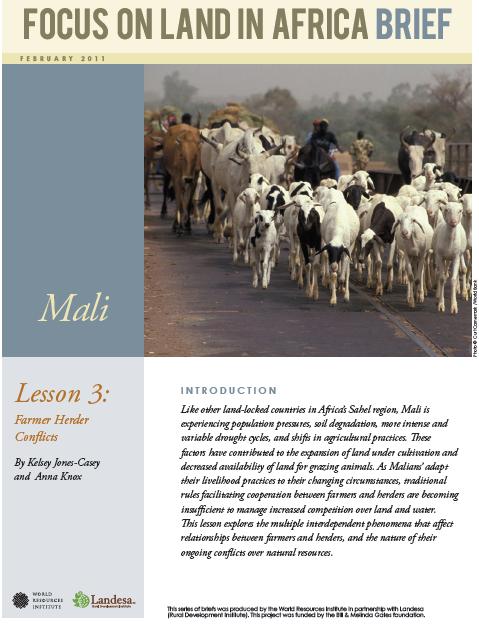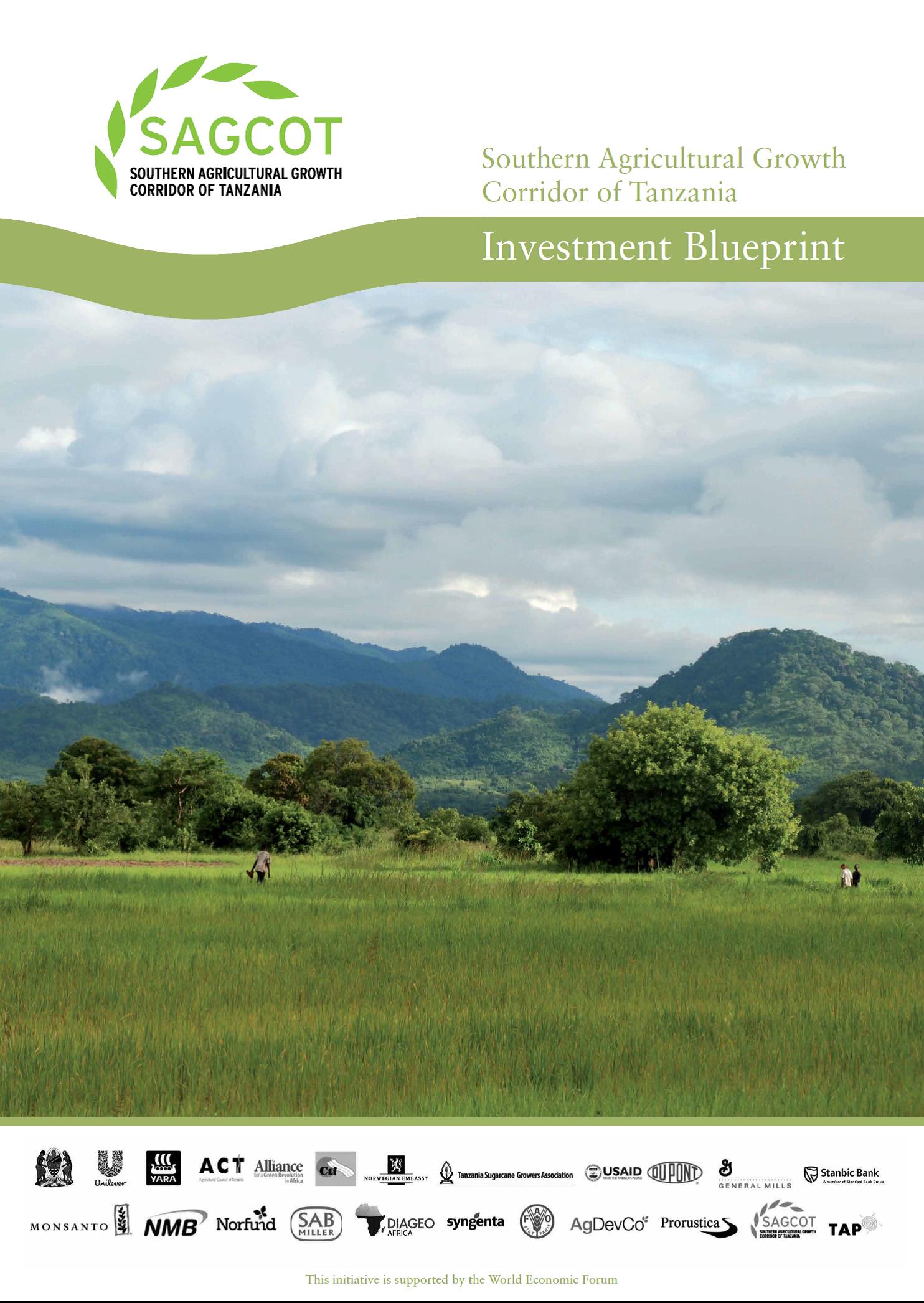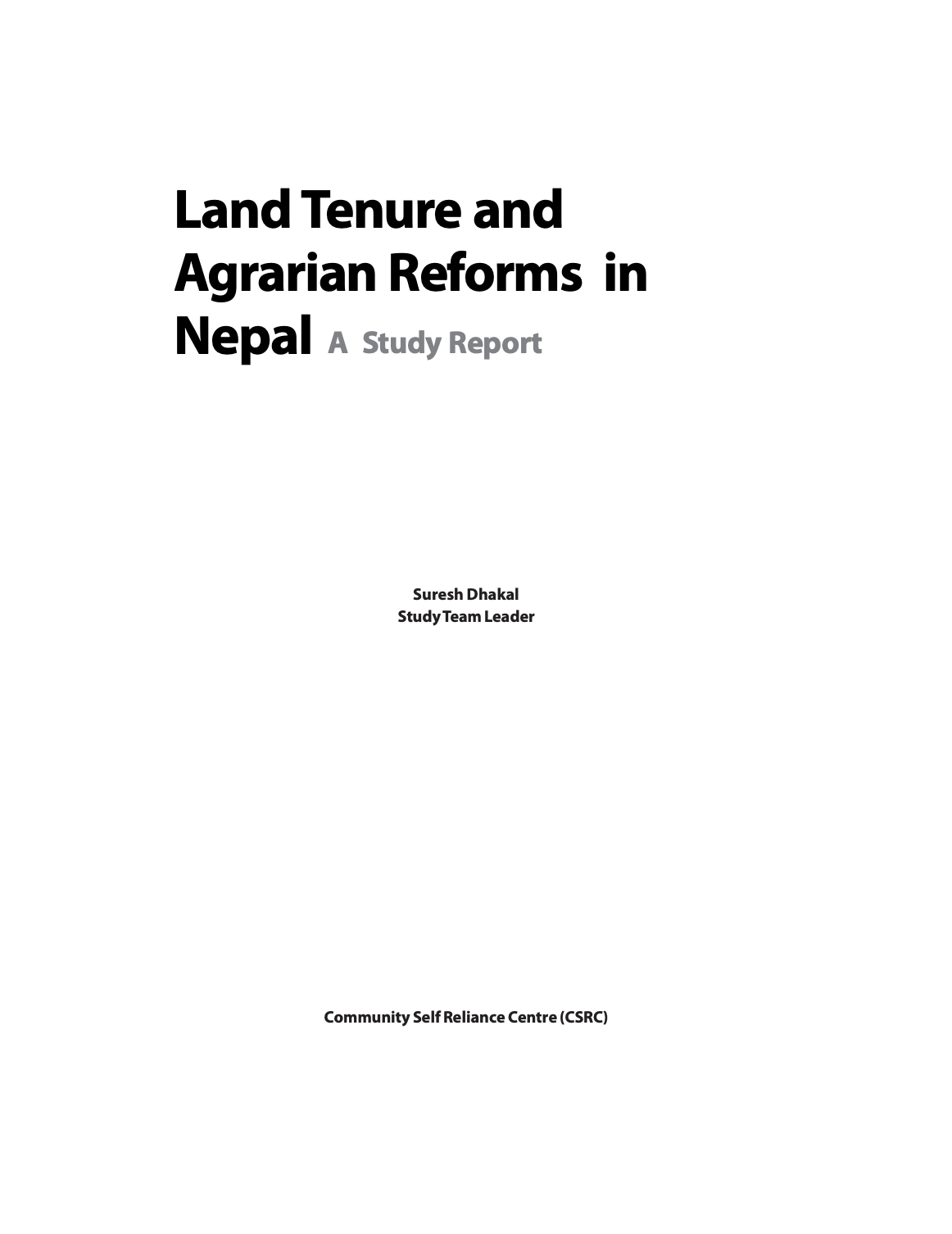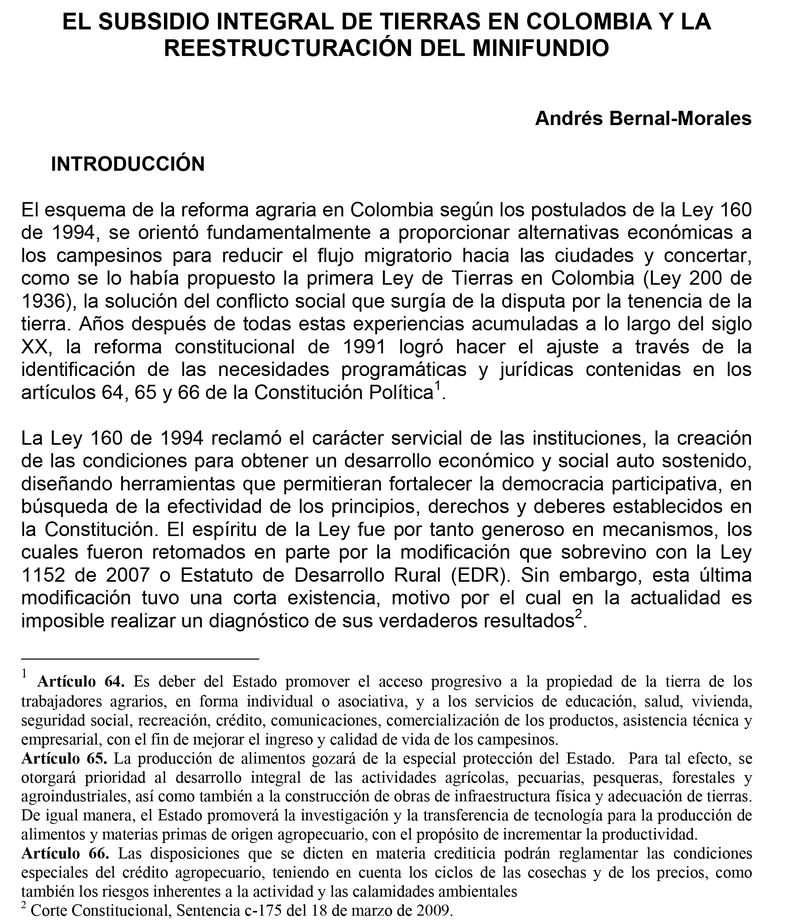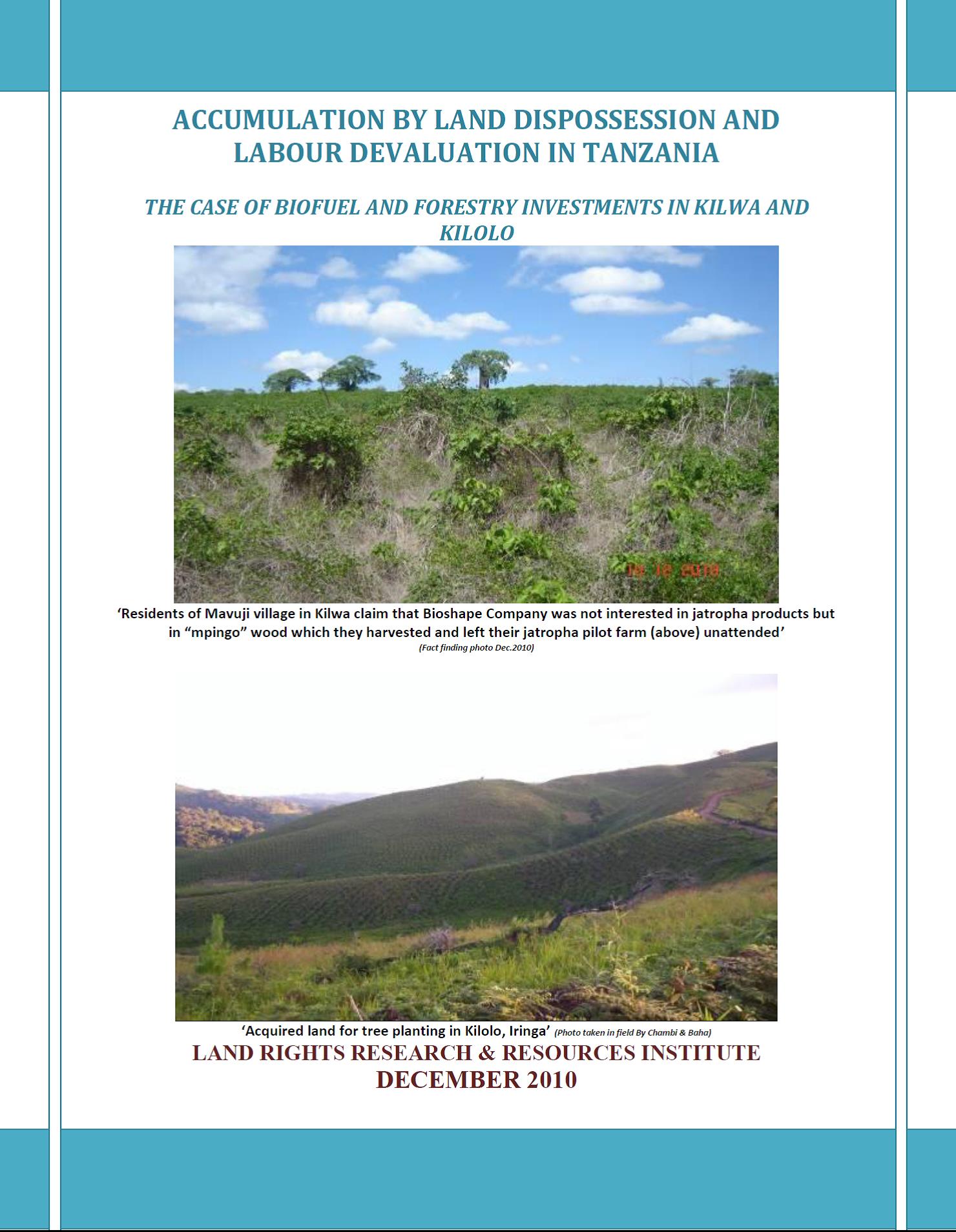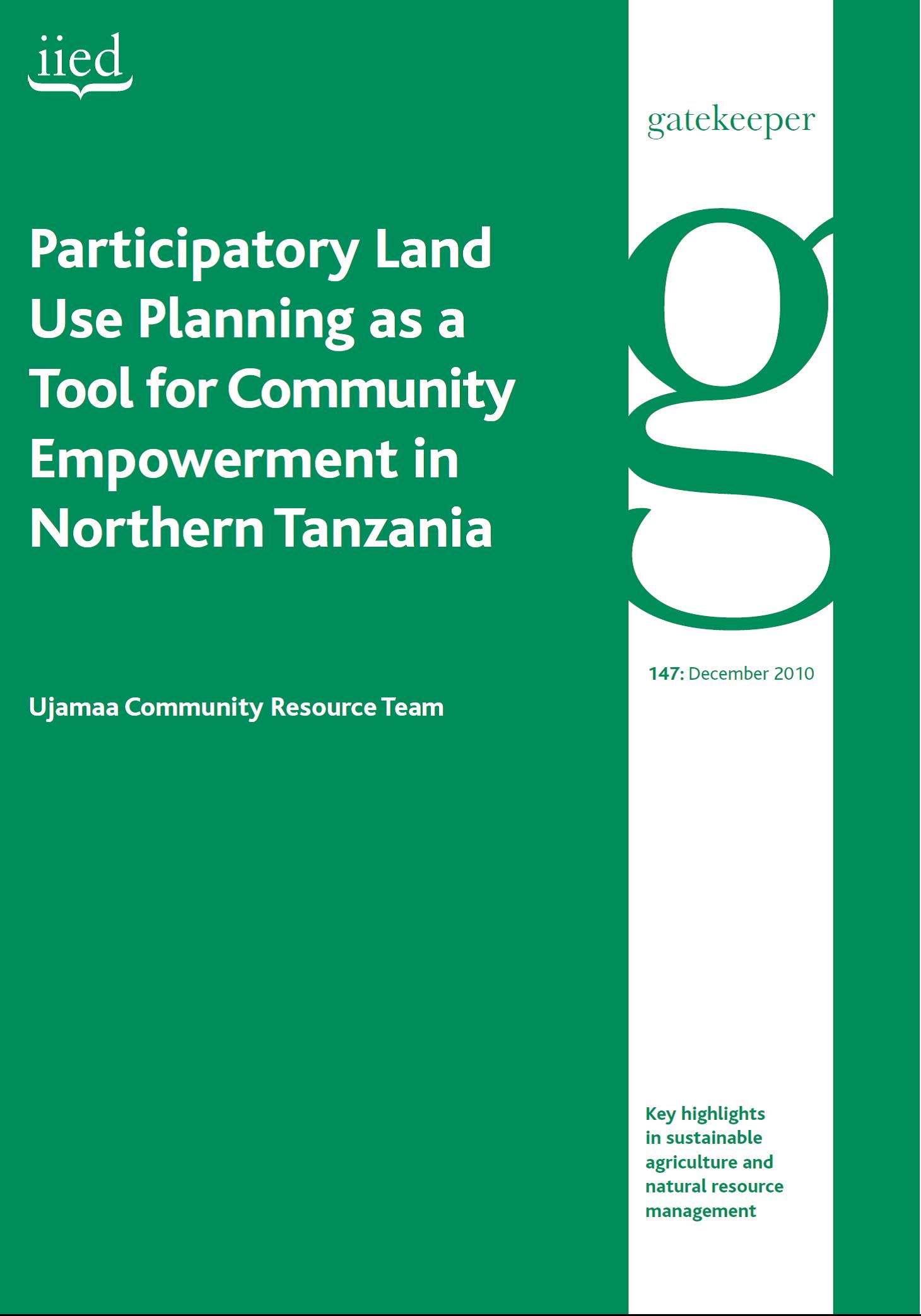Focus on Land in Africa: Mali Lesson Brief, Farmer-Herder Conflicts
This lesson brief explores the multiple independent phenomena that affect relationships between farmers and herders, as well as the nature of their conflicts over natural resources in Mali. It is part of the Focus on Land in Africa: Land Tenure and Property Rights online educational tool.

